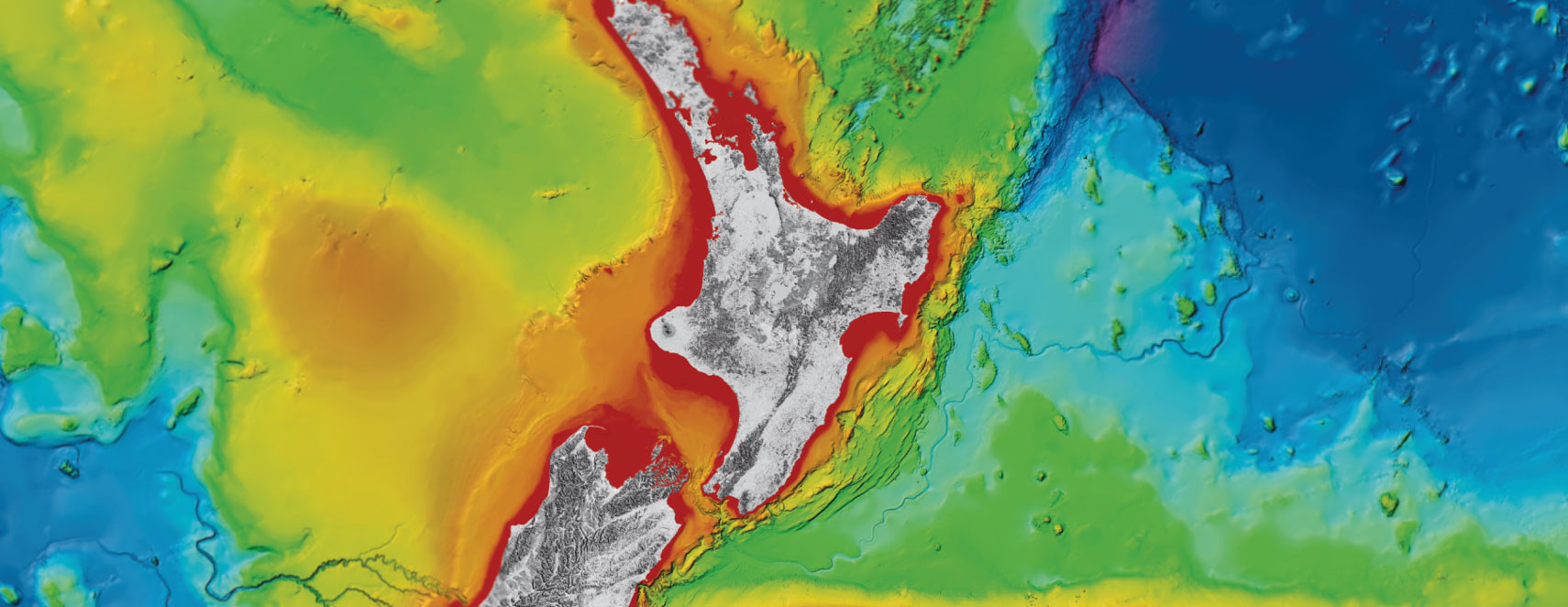
Revelle Blog #9 Flow meter instruments
Dr. Claire McKinley is a Research Associate from the University of Washington. She is currently working and reporting on the research occurring along the Hikurangi subduction zone on board the US research vessel Revelle.
Fluid flow meters are the foundation of this research project. These are instruments that we install on the sea floor to collect pore water and measure the rate of water flowing into and out of the seafloor over several years.
They not only record the rate of fluid flow but also collect water for chemical analyses which tells us about what is happening deep below the seafloor.
The flow meters are key to this project because while we have collected a huge amount of data during our five weeks at sea, we need continuous measurements in order to be able to compare fluid flow to the seismic and observatory data that is being collected in the region at the same time.
Part of the reason we invest so much time in identifying seep sites is that we want to be sure we leave our fluid flow meters in locations where they will have the most success in capturing water movement.
We build and deploy two different types of flow meters: the Chemical Aqueous Transport meter (CAT meters) and Mosquitos. They both collect similar data in different ways.
The CAT meter is sensitive to very very small fluctuations in fluid flow, and the Mosquito pierces the sea floor with needles (like a mosquito) and records fluid flow at different depths within the seafloor.
We started building them in early August in order to be able to have them arrive safely in New Zealand before the voyage. The flow meters are really clever because they are powered by the movement of water so they have no moving parts, no batteries, they require no electricity and so they are very unlikely to fail.
University of Washington Professor and Chief Scientist Evan Solomon arrived in Wellington a week ahead of our departure on the R/V Revelle along with graduate students Theresa Whorley and Rita Alyward to prepare the fluid flow meters. Theresa is a flow meter expert. She has built and deployed 26 instruments for five expeditions over the last five years. She says flow meters will be our eyes on the seafloor for the next two years.
One of the finial jobs in preparing a CAT meter for deployment is the important but boring job of watching ultra clean water flow through all of the instruments to make surethere are no bubbles blocking the flow path.
Rita Alyward found that she could pass the time by drawing a cat on the side of each CAT meter. We have deployed several friendly faces to the seafloor including Spike, Oscar, Dr. Schrödinger, Mimi, Nym, Ariel, and Roy. Rita is looking forward to getting these each of them back in 2021.
Disclaimers and Copyright
While every endeavour has been taken by the East Coast Lab Hikurangi Subduction Zone M9 to ensure that the information on this website is
accurate and up to date, East Coast Lab Hikurangi Subduction Zone M9 shall not be liable for any loss suffered through the use, directly or indirectly, of information on this website. Information contained has been assembled in good faith.
Some of the information available in this site is from the New Zealand Public domain and supplied by relevant
government agencies. East Coast Lab Hikurangi Subduction Zone M9 cannot accept any liability for its accuracy or content.
Portions of the information and material on this site, including data, pages, documents, online
graphics and images are protected by copyright, unless specifically notified to the contrary. Externally sourced
information or material is copyright to the respective provider.
© East Coast Lab Hikurangi Subduction Zone M9 - www.eastcoastlab.org.nz / +64 6 835 9200 / info@eastcoastlab.org.nz
